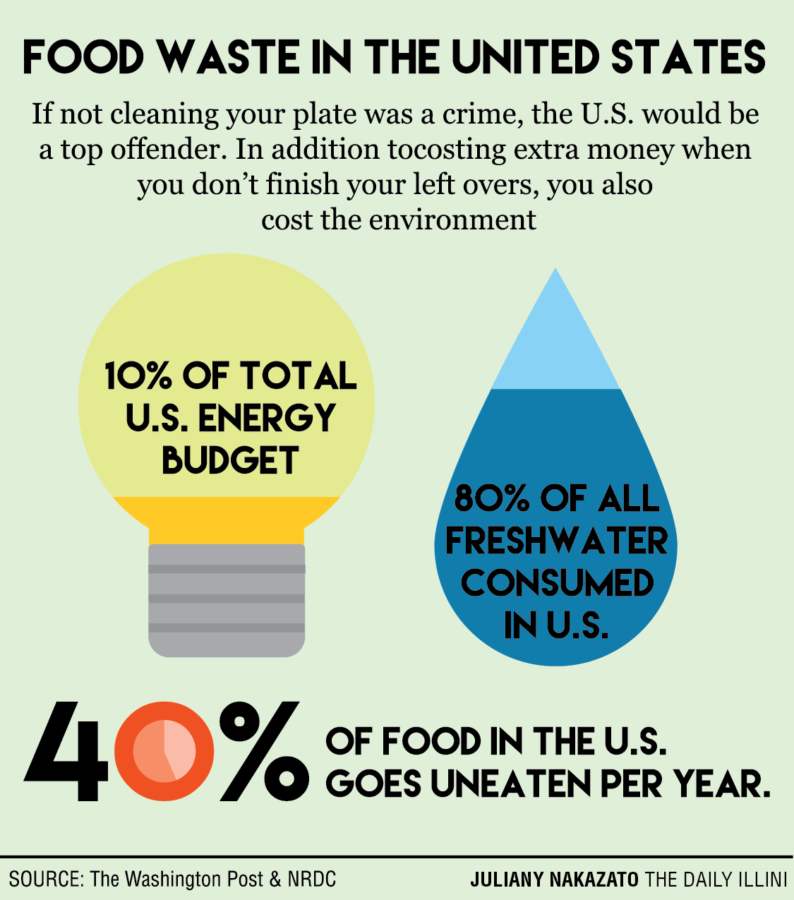Cook smarter, not harder: Reduce waste, cost when cooking for yourself
Feb 23, 2016
While many students relish the freedom of being able to cook their own meals once they leave the dorms, some may find the task of cooking for just one person to be daunting. However, there are some things that students can do to reduce cost to themselves and to the environment.
Sometimes even the simplest things are the most beneficial.
Make sure you have the supplies you need to cook, such as measuring cups, pots, pans and dishes. By having the right tools, you’ll be able to follow your recipes to the letter, and — hopefully — reduce the amount of mishaps you have in your kitchen, which means you won’t have to throw out food you could have eaten if you had prepared it properly.
In that vein, invest in Tupperware to store your leftovers in. Bonus points if it’s fun; you’ll end up using it more if it’s something you like looking at.
There’s no need to abandon your favorite recipes or cut them down, which can often leave you with half a can of beans spoiling in the fridge. Instead, you can make food for the whole week. http://www.sustainableamerica.org/blog/cooking-for-one-with-zero-waste/
Get The Daily Illini in your inbox!
Make one or two items on Sunday that allow you to create different iterations on it throughout the week. For example, make a pot roast, a chicken or a stew, and use the leftovers to give variety to your week by making different dishes such as tacos, salads or wraps. By portioning out your meals, not only do you ensure that all of your food gets consumed, you save money and reduce the amount you waste.
Food waste is a serious problem in the U.S. In 2012, Americans threw out 35 million tons of food — nearly three times the 12.5 million tons that were trashed in 1960mp.
Although throwing out food may be harmful to your wallet, it’s also harmful to the environment. As it decomposed in landfills, food releases methane, a greenhouse gas estimated to be 20 times more lethal than carbon dioxide. https://www.washingtonpost.com/news/wonk/wp/2014/09/23/americans-throw-out-more-food-than-plastic-paper-metal-or-glass/This, along with the energy expended to grow, harvest, sort and transport the food, can have a negative impact on the health of the planet.
To help reduce this impact on the planet, there are several things anyone can do, according to the 2012 report by the National Resources Defense Council.https://www.nrdc.org/food/files/wasted-food-ip.pdf When purchasing food, people should be cognizant of expiration dates and consider picking “ugly” produce that may have flaws or be misshapen, but are perfectly edible. When cooking, people should only cook what they will need — or, cook and portion out food to eat later, making sure that they eat their leftovers.
While this seems to be just good advice in general, it can also be especially useful if it’s your first time cooking for only yourself.
Oh, and don’t forget to eat your vegetables.??
Susan is a junior in Media.






